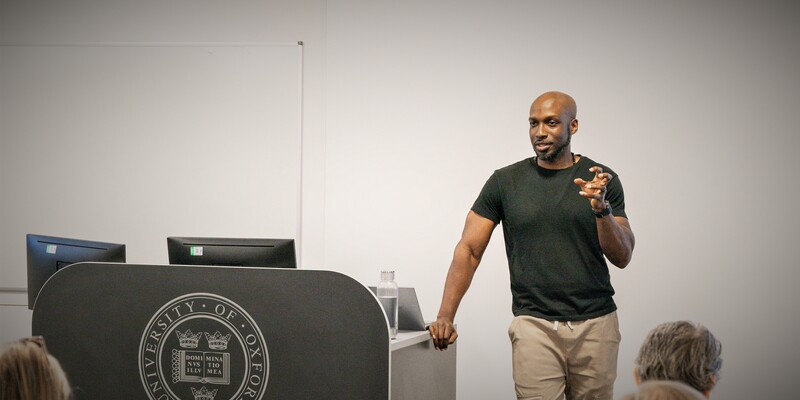Manage your energy, not your time: 5 ways to lower stress and power your focus


By Eleanor Hope-Jones
•
Jul 07, 2023
Do you often feel like you're unable to accomplish tasks despite putting in long hours? The culprit may not be a lack of time, but a lack of strategy in how you go about managing your energy.
Put simply, our energy levels are limited, and if we spend them on activities that drain us, we won't have enough left to power our focus and productivity. By rethinking our routines and prioritizing activities that energize us, we can reduce stress levels and power up our all-important focus.
Join us as we dive into what exactly managing your energy means and our five surefire ways to manage your energy levels effectively 💪
What does it mean to manage your energy, not your time?
Managing your time means prioritizing your time and using it as efficiently as possible. Meanwhile managing your energy means thinking about, and utilizing, activities that energize you, values you’re inspired by and routines that motivate you. Rather than thinking about how you can make the most of a finite resource, like time, you’re putting your focus on increasing a resource, energy.
5 ways to manage your energy levels throughout the day
Managing your energy levels is crucial for maintaining consistent performance throughout the day, week, and year. But it’s not just the obvious physical energy we’re talking about here.
Energy comes from four wellsprings in human beings: the body, emotions, mind, and spirit. To achieve optimal energy levels, it's important to consider all four types and establish specific rituals to renew every single one.
Fuel your physical energy
Physical energy refers to the level of energy that your body has to perform physical activities and functions. It’s the foundation upon which all other energies are built, providing the raw fuel needed to power the body, mind, emotions, and spirit.
Nutrition and regular exercise
It's a truth universally acknowledged that eating a balanced diet and establishing a regular exercise routine is crucial to your energy levels. That doesn’t mean we all do it though.
But even small changes like eating smaller meals and light snacks every three hours to stabilize glucose levels throughout the day, preventing energy crashes, can make a huge difference. Or as one study published in the Journal of the International Society of Sports Nutrition found, consuming a breakfast high in protein and carbohydrates can increase energy levels.
Making small changes today will compound over time until you’re living the energy-filled life of your dreams.
Taking regular breaks
Do you ever feel like you're hitting a wall in the middle of the workday?
That's because our bodies go through 90- to 120-minute cycles, where we move from high-energy to a physiological trough. Taking short, intermittent breaks throughout the day can help renew our energy and increase performance. So, step away from your desk and try something fun and rejuvenating, like listening to music, chatting with a colleague, or even taking a quick nap.
Walking
A 20-minute walk can give you a mental break and boost creativity. When you walk, your dominant left brain hemisphere takes a break and allows your right hemisphere to take over, giving you a greater capacity to see the big picture and make imaginative leaps. Walking also increases blood flow to the brain, boosting energy and alertness.
A Stanford study found that participants who walked generated more creative ideas than those who sat and brainstormed, while another study in the Scandinavian Journal of Medicine & Science
in Sports found that walking increased energy levels.
Manage your emotional energy
Did you know negative emotions actually drain our energy and hinder our ability to think clearly and effectively? Meanwhile, positivity can power focus and lead to increased well-being. In our busy and demanding lives, it can be challenging to maintain a positive outlook. But fear not, as there are three powerful rituals that can help cultivate positive energy and improve our emotional control.
Breathwork
Breathwork is a simple yet effective technique for defusing negative emotions. Deep abdominal breathing induces relaxation and recovery and turns off the fight-or-flight response. Taking deep breaths for five or six seconds can help us regain control over our emotions and maintain positivity throughout the day.
Appreciation and gratitude
Expressing appreciation and gratitude is another powerful ritual that fuels positive emotions. By taking the time to recognize and appreciate the accomplishments of others, we can create a more positive work environment and improve our own emotional well-being.
Whether it's through a handwritten note, an email, a call, or a conversation, try expressing gratitude and see what impact it has on both yourself and the person you’re sharing your positive feelings with.
The power of narrative
Changing the stories we tell ourselves can be a game-changer for cultivating positive energy. It can be only too easy to cast ourselves as victims in conflicts, blaming others or external circumstances for our problems. Becoming aware of the difference between the facts in a given situation and the way we interpret those facts can be a powerful tool.
By reframing our narratives to tell the most hopeful and empowering story possible, we can intentionally cultivate more positive emotions. By asking ourselves specific questions, we can shift our perspective and create a more positive outlook.
Reduce the drain on your mental energy
Mental energy is like a battery for your brain. It powers your ability to think, concentrate, and make decisions. Just like a phone battery, mental energy can get drained over time, leaving you unable to focus. So it's important to take care of your mental energy by reducing the drain on it and recharging it regularly.
Context switching
Context switching is like having too many browser tabs open in your mind - imagine what that does to battery life! When you try to multitask, your brain will use a little bit of extra mental energy to switch between different tabs. This can leave you feeling mentally drained and decrease your productivity. Research has also shown that it takes time for our brain to refocus after each switch, further slowing us down.
Luckily, there's a way to combat this: time blocking. By dedicating specific blocks of time to different tasks, you can focus your attention on one thing at a time and get some proper deep work done. This allows you to conserve your mental energy and get more done. Try dedicating the first hour of your day to your most important task, or checking your email at a specific time of day instead of constantly throughout.
Radical prioritization
Another way to channel our mental energy is to prioritize activities that have the most significant long-term impact. When we intentionally reserve time for more challenging work, we are less likely to procrastinate or rush through it at the last minute.
Try prioritizing a critical task that you care deeply about at the very beginning of your work day, instead of checking email or reacting to the demands of others. Hopefully, you’ll get that buzz of accomplishment first thing and feel more energized to tackle the rest of your day's tasks.
Replenish your spiritual energy
Spiritual energy is all about feeling connected to something bigger than yourself. It's that warm feeling you get when you're surrounded by people you love, that sense of awe when you look up at the stars, or, when related to work, that calling that drives us to pursue our goals and make a positive impact in the world.
While scientists are still trying to figure out exactly what this energy is and how it works, there's evidence to suggest that it can make us feel happier, less stressed, and more fulfilled. So if you're feeling a bit lost or disconnected, maybe it's time to tune into your spiritual energy and see where it takes you.
Reflect on your work experiences
To discover what kind of work replenishes your spiritual energy, look back and try to recall at least two work experiences where you felt effective, inspired, and fulfilled. Deconstruct these experiences to understand what specific talents you were drawing on and what impact you had that made you feel this way. Reflect on what aspect of the experience replenished you, and what it may suggest is your purpose or calling in life.
Activities like this can help you find your why, a concept visionary thinker and thought leader Simon Sinek defines as: “The compelling higher purpose that inspires us and acts as the source of all we do.” Sounds like a great place to source spiritual energy in abundance if you ask us!
Create meaningful rituals
Once you’ve defined what’s meaningful for you spiritually, rituals can help close the gap between what we say is important and what we actually do. If spending time with your family is a priority, institute a ritual where you switch off for at least three hours every evening to focus on them. Or choose a specific spot on your commute home to end work-related calls and relax, so you're more available to your loved ones.
Practice your values daily
Practicing your core values in your everyday behavior can feel challenging or even overwhelming. It may just mean tweaking your everyday routines so they line us with your why, but for some it might mean a larger pivot. It’s hard to feel spiritually energized in a job you fundamentally disagree with or if your relationship isn’t aligned with your deep-set family values.
Try not to feel overwhelmed by the idea of aligning your everyday behavior with your core values. Start small by identifying one or two areas where you feel particularly disconnected from your values, and brainstorm ways to make small adjustments that bring you closer to alignment. Over time larger changes will become more obvious as you observe the effect smaller changes have on your spiritual energy.
Don’t go it alone!
Before you start implementing strategies to gain your energy boost, consider how you can get buy-in from the people around you. Identify the key decision-makers and individuals in your circle, whether it be a boss, significant other or wider family.
Share the benefits of these energy-enhancing strategies, and explain how they can improve your overall well-being and productivity. Finding a community of likeminded individuals can also help you on your journey to cultivating more energy.
By incorporating these strategies into your own daily routine you’ll motivate others to join you on this journey and cultivate a culture of high energy and increased productivity.

















